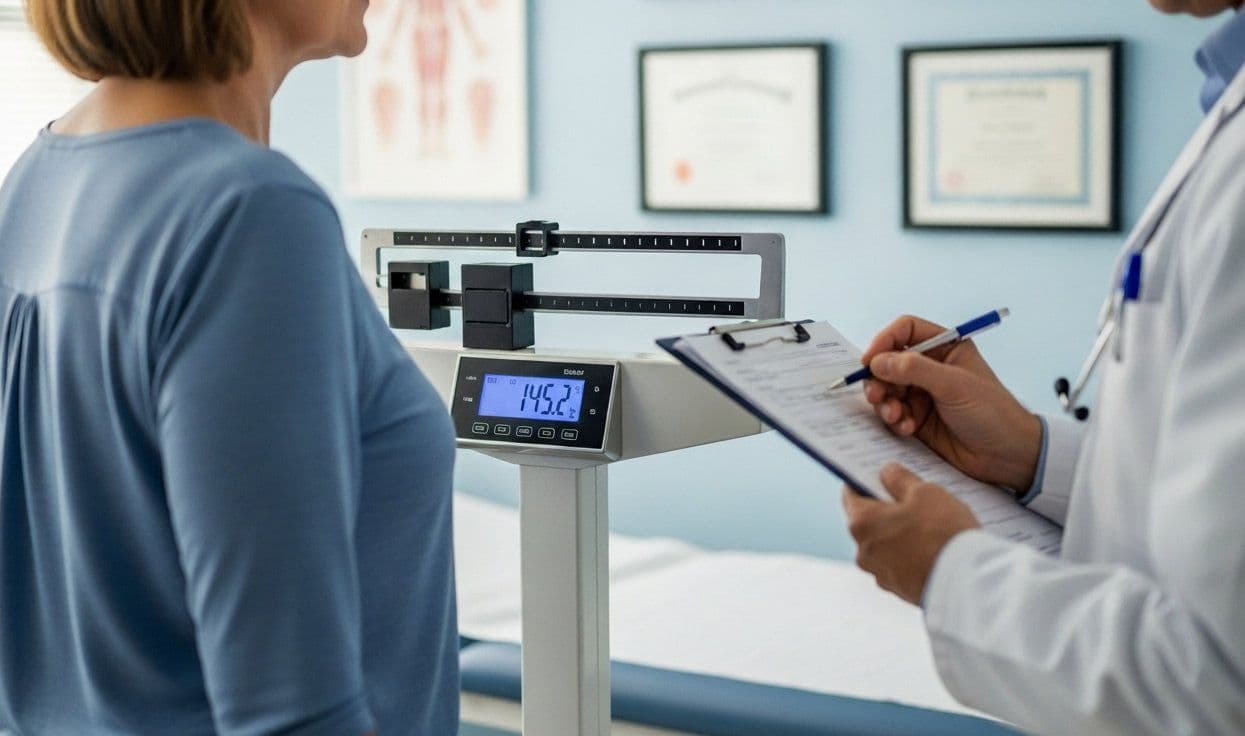Medical Weight Loss 101: What You Need to Know Before Starting
Updated: October 2, 2025

Understanding the Basics
Medical weight loss isn't just another diet trend. Actually, it's a comprehensive approach that combines science with personalized care to help you reach your goals safely and effectively.
But what exactly does "medical weight loss" mean?
When we talk about medical weight loss, we're referring to physician-supervised programs that use evidence-based treatments tailored to your unique health profile. Unlike fad diets or quick fixes you see advertised everywhere, these programs are grounded in real medical science and overseen by healthcare professionals who understand how your body works.
Why Medical Supervision Matters
You might be wondering - why can't I just do this on my own? And honestly, that's a fair question. The truth is, sustainable weight loss involves more than just eating less and moving more. Your body is complex, and there are often underlying factors that make weight loss challenging.
Medical supervision provides several key advantages:
- Professional assessment of your overall health status
- Identification of potential underlying conditions affecting weight
- Safe monitoring throughout your weight loss journey
- Access to prescription medications when appropriate
- Ongoing support and adjustment of your plan as needed
Actually, many people have tried countless diets and exercise programs without lasting success. But when you work with medical professionals, you get to the root causes instead of just treating symptoms.
Who Can Benefit from Medical Weight Loss?
Medical weight loss programs aren't just for people with extreme obesity. Actually, they can be helpful for anyone who's struggling to lose weight safely and keep it off. You might be a good candidate if you:
- Have tried multiple diets without lasting results
- Have medical conditions related to your weight
- Need to lose weight for health reasons
- Want professional guidance and support
- Are looking for sustainable, long-term results
But here's the thing - not everyone needs medical intervention for weight loss. Sometimes simple lifestyle changes are enough. That's why we always start with a thorough evaluation to determine what approach will work best for you.
The Science Behind Medical Weight Loss
Weight gain and loss aren't just about willpower. Actually, your body has complex systems that regulate hunger, metabolism, and fat storage. These systems can get out of balance for various reasons - genetics, hormones, medications, stress, sleep patterns, and more.
Medical weight loss addresses these factors through:
- Comprehensive metabolic testing
- Hormone evaluation and balancing
- Nutritional analysis and planning
- Medication management when needed
- Behavioral modification support
And the results speak for themselves. Studies show that medically supervised weight loss programs typically achieve better long-term success rates compared to going it alone.
What to Expect During Your Initial Consultation
Your first visit sets the foundation for everything that follows. Actually, this isn't just a quick weigh-in and prescription handout. We take time to really understand your situation.
During your initial consultation, we'll review your complete medical history, including any previous weight loss attempts, current medications, and existing health conditions. We'll also discuss your lifestyle, eating habits, exercise routine, and personal goals.
But that's just the beginning. We may recommend comprehensive lab work to check things like thyroid function, insulin levels, vitamin deficiencies, and other markers that could be affecting your weight. This gives us a complete picture of what's happening in your body.
Common Medical Weight Loss Treatment Options
Now let's talk about what actual treatments might be part of your program.
Actually, there's no one-size-fits-all approach here. What works for your neighbor might not be the best option for you, and that's exactly why medical supervision is so valuable.
- Prescription medications are often a key component when appropriate. These aren't the risky diet pills you might remember from decades past. Today's FDA-approved weight loss medications work through different mechanisms - some help control appetite, others affect how your body processes nutrients, and newer options can significantly impact hunger hormones.
- But medications are just one piece of the puzzle. Nutritional counseling helps you understand not just what to eat, but when and why. We're not talking about restrictive diets that leave you feeling deprived. Instead, we focus on sustainable eating patterns that you can maintain long-term.
- Metabolic testing can reveal if your metabolism is running slower than it should be. Sometimes addressing thyroid issues, insulin resistance, or other hormonal imbalances can make weight loss much easier. And when we fix these underlying problems, you often feel better overall - more energy, better sleep, improved mood.
Setting Realistic Expectations
Let's be honest about timelines here. Medical weight loss isn't magic, and anyone promising you'll lose 30 pounds in 30 days is probably selling you something that won't work long-term. Actually, the most successful patients are those who understand that sustainable weight loss takes time.
- A healthy rate of weight loss is typically 1-2 pounds per week, though this can vary based on your starting point and individual factors. Some weeks you might lose more, some weeks less. That's completely normal and doesn't mean the program isn't working.
But here's what's different about medical weight loss - we're not just focused on the number on the scale. We're tracking improvements in your overall health markers, energy levels, sleep quality, and how you feel day-to-day. Often patients notice these improvements before they see dramatic changes in weight.
Lifestyle Factors That Support Success
Weight loss medications and medical monitoring are powerful tools, but they work best when combined with healthy lifestyle changes. Actually, this is where many people get overwhelmed, thinking they need to overhaul their entire life overnight.
- Start small and build gradually. Maybe that means taking a 10-minute walk after dinner or replacing one sugary drink with water each day. These small changes add up over time and are much more sustainable than dramatic lifestyle overhauls.
- Sleep matters more than most people realize. Poor sleep affects hunger hormones and can make weight loss much harder. We often work with patients to improve their sleep hygiene as part of their overall program.
And stress management isn't just about feeling better - chronic stress actually promotes weight gain through hormonal pathways. Finding healthy ways to manage stress, whether through exercise, meditation, or other activities you enjoy, supports your weight loss goals.
Long-Term Success and Maintenance
This might be the most important section because keeping weight off is often harder than losing it in the first place. Actually, this is where medical weight loss programs really shine compared to do-it-yourself approaches.
- Ongoing support makes all the difference. Regular check-ins allow us to adjust your plan as your body changes and your needs evolve. What worked during the initial weight loss phase might need tweaking for long-term maintenance.
- We also help you develop strategies for handling challenges that inevitably come up - holidays, vacations, stressful periods, or life changes that could derail your progress. Having a plan in place for these situations makes you much more likely to stay on track.
- The goal isn't perfection - it's developing a sustainable approach to healthy living that you can maintain for years to come. Some people continue with medications long-term, others transition to lifestyle-only maintenance. We work with you to find what works best for your situation.
Taking the Next Step
If you're tired of trying diet after diet without lasting results, medical weight loss might be exactly what you need. Actually, many of our patients wish they had started sooner instead of spending years struggling on their own.
At PrimeHealthMD, we understand that starting a weight loss program can feel overwhelming. But you don't have to figure it all out by yourself. Our team is here to guide you through every step of the process, from your initial evaluation through achieving and maintaining your goals.
Most major insurance plans cover medical weight loss services, making this approach more accessible than many people realize. Ready to find out if medical weight loss is right for you? Contact PrimeHealthMD today to schedule your consultation and learn about your insurance eligibility. Your weight loss journey starts with a single phone call.
